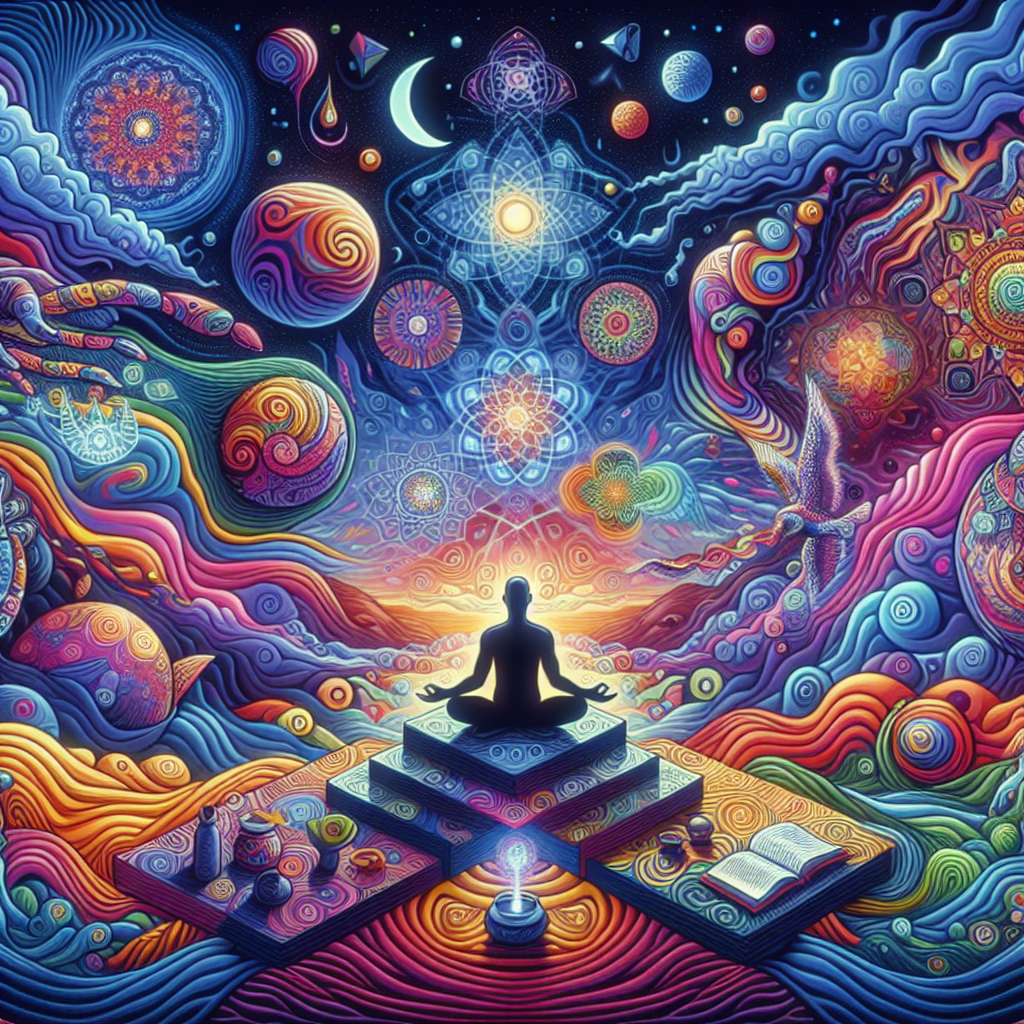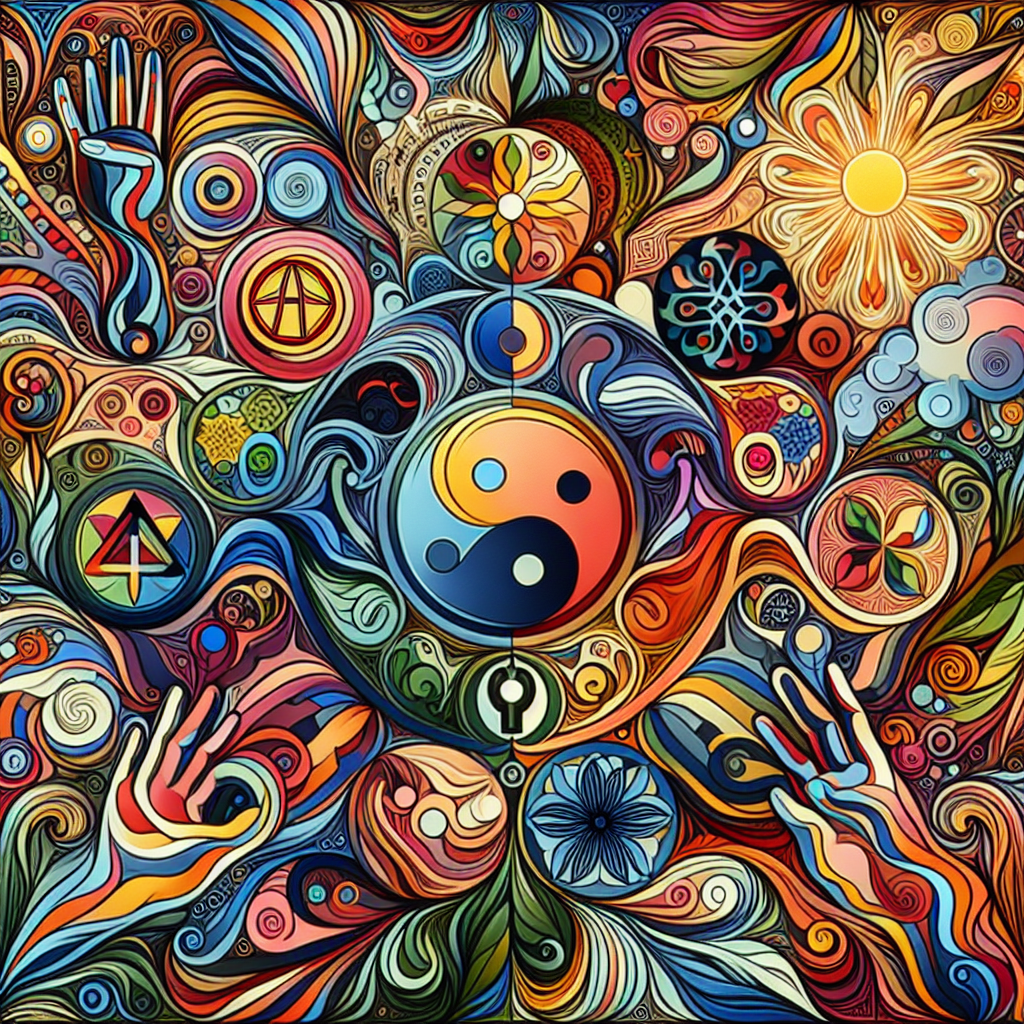The Role of Psychedelics in Holistic Well-Being

Discover the role of psychedelics in holistic well-being today! Uncover the potential benefits and transformative power these substances can have on your overall health. Learn more at Vibrant Vitality.
Exploring the Impact of Psychedelics on Emotional and Mental Health
Psychedelics, once relegated to the fringes of society, are now experiencing a renaissance in the realm of mental health and holistic well-being. These substances, which include LSD, psilocybin (magic mushrooms), and DMT, have been the subject of numerous studies and clinical trials, revealing their potential to profoundly impact emotional and mental health.
Psychedelics are known for their ability to induce altered states of consciousness, characterized by changes in perception, mood, and cognitive processes. These experiences, often described as mystical or spiritual, can lead to significant shifts in one’s perspective and understanding of the self. This transformative potential is what has drawn the attention of researchers and therapists alike, who see in psychedelics a powerful tool for healing and personal growth.
One of the most promising areas of research is the use of psychedelics in the treatment of mental health disorders. Studies have shown that these substances can have a profound effect on conditions such as depression, anxiety, and post-traumatic stress disorder (PTSD). For instance, a study published in the Journal of Psychopharmacology found that a single dose of psilocybin, combined with psychotherapy, significantly improved symptoms in patients with treatment-resistant depression. Similarly, research conducted at Johns Hopkins University revealed that psilocybin therapy could reduce anxiety and depression in individuals with life-threatening cancer.
The therapeutic potential of psychedelics lies in their ability to facilitate deep emotional and psychological exploration. During a psychedelic experience, individuals often confront and process difficult emotions, traumas, and memories. This process, known as psychedelic-assisted psychotherapy, can lead to profound insights and lasting changes in one’s mental and emotional well-being.
Moreover, psychedelics have been found to promote neuroplasticity, the brain’s ability to form new connections and pathways. This can lead to improved cognitive flexibility, allowing individuals to break free from rigid thought patterns and behaviors that contribute to mental health disorders.
However, it’s important to note that the use of psychedelics is not without risks. These substances can induce intense and sometimes distressing experiences, and their use should always be supervised by a trained professional. Furthermore, individuals with a history of psychosis or other serious mental health conditions should avoid psychedelics due to the potential for adverse reactions.
Despite these risks, the potential benefits of psychedelics for emotional and mental health are undeniable. As our understanding of these substances continues to grow, so too does the possibility of integrating them into mainstream mental health care.
In conclusion, the role of psychedelics in holistic well-being is a burgeoning field of study. The potential of these substances to facilitate deep emotional healing and personal growth is increasingly being recognized by the scientific community. While further research is needed to fully understand the mechanisms at play, the current evidence suggests that psychedelics could play a significant role in the future of mental health treatment. As we continue to explore the impact of psychedelics on emotional and mental health, we may well be on the cusp of a new era in holistic well-being.
The Role of Psychedelics in Enhancing Mind-Body Connection

The role of psychedelics in holistic well-being is a topic that has been gaining significant attention in recent years. This is largely due to a growing body of research suggesting that these substances, when used responsibly and under the guidance of a trained professional, can have profound effects on mental health and overall well-being. One of the most intriguing aspects of this research is the potential role of psychedelics in enhancing the mind-body connection, a fundamental aspect of holistic health.
The mind-body connection refers to the relationship between our mental and physical health. It is a concept that has been central to holistic health practices for centuries, with the understanding that our thoughts, feelings, beliefs, and attitudes can positively or negatively affect our biological functioning. Conversely, what we do with our physical body—what we eat, how much we exercise, even our posture—can impact our mental state. This interconnection is something that modern medicine is increasingly recognizing as crucial to overall health.
Psychedelics, substances that can induce profound changes in perception, mood, and cognitive processes, appear to have a unique ability to enhance this mind-body connection. This is largely due to their ability to alter consciousness and promote introspection, allowing individuals to gain a deeper understanding of their inner selves and their relationship with the world around them.
Research has shown that psychedelics such as psilocybin (found in magic mushrooms) and LSD can facilitate experiences of self-transcendence and unity, often leading to lasting improvements in mental health and well-being. These experiences can help individuals to break free from rigid thought patterns and behaviors, fostering a greater sense of flexibility and openness. This can be particularly beneficial for those struggling with mental health issues such as depression and anxiety, where rigid negative thinking can be a major obstacle to recovery.
Moreover, the use of psychedelics can lead to a heightened sense of body awareness. Users often report feeling more in tune with their physical selves, experiencing a greater sense of embodiment. This can help to foster a healthier relationship with the body, promoting better self-care and healthier habits. It can also lead to a greater appreciation for the body’s innate wisdom and healing capabilities, a key aspect of holistic health.
However, it’s important to note that the use of psychedelics is not without risks. These substances can induce intense and sometimes distressing experiences, and their use should always be supervised by a trained professional. Furthermore, they are not a panacea and should not be seen as a substitute for other forms of treatment. Rather, they should be viewed as a tool that can complement and enhance traditional therapies.
In conclusion, the role of psychedelics in enhancing the mind-body connection is a promising area of research. These substances have the potential to facilitate profound shifts in consciousness, promoting greater self-awareness and a deeper understanding of the interconnection between our mental and physical health. As our understanding of these substances continues to grow, it is hoped that they will become an increasingly important tool in the pursuit of holistic well-being.
Psychedelics and Spirituality: A New Approach to Holistic Well-Being
The role of psychedelics in holistic well-being is a topic that has been gaining significant attention in recent years. This is largely due to a growing body of research suggesting that these substances, when used responsibly and under the guidance of a trained professional, can have profound effects on mental health and spiritual growth. This new approach to holistic well-being is reshaping our understanding of the human mind and its potential for healing and transformation.
Psychedelics, such as psilocybin (found in magic mushrooms), LSD, and ayahuasca, have been used for centuries in various cultures for spiritual and healing purposes. These substances are known for their ability to induce altered states of consciousness, during which users often report experiencing profound insights, feelings of interconnectedness, and a heightened sense of empathy and compassion. These experiences can lead to significant shifts in perspective and behavior, which can have lasting positive effects on mental health and overall well-being.
In recent years, scientific research has begun to explore the potential therapeutic benefits of psychedelics. Studies have shown that these substances can be effective in treating a range of mental health conditions, including depression, anxiety, post-traumatic stress disorder (PTSD), and addiction. This is largely due to their ability to facilitate deep psychological introspection and emotional processing, which can lead to breakthroughs in self-understanding and healing.
Moreover, the spiritual experiences often associated with psychedelic use can also play a crucial role in promoting holistic well-being. Many users report experiencing a sense of unity and interconnectedness with all things, a dissolution of the ego, and a profound sense of awe and wonder. These experiences can lead to a greater sense of purpose, a deeper appreciation for life, and a more compassionate and empathetic worldview. This spiritual dimension of psychedelic use is increasingly being recognized as a key component of their therapeutic potential.
However, it’s important to note that the use of psychedelics is not without risks. These substances can induce intense and sometimes challenging experiences, and their use should always be supervised by a trained professional. Furthermore, they are not a panacea and should be used as part of a broader approach to mental health and well-being that includes other therapeutic modalities, such as psychotherapy, mindfulness, and lifestyle changes.
In conclusion, the role of psychedelics in holistic well-being is a promising area of research that is reshaping our understanding of mental health and spiritual growth. These substances have the potential to facilitate deep psychological healing and spiritual transformation, which can have lasting positive effects on overall well-being. However, their use should always be approached with caution and under the guidance of a trained professional. As our understanding of these substances continues to evolve, it’s clear that they have much to offer in our quest for holistic well-being and a deeper understanding of the human mind.